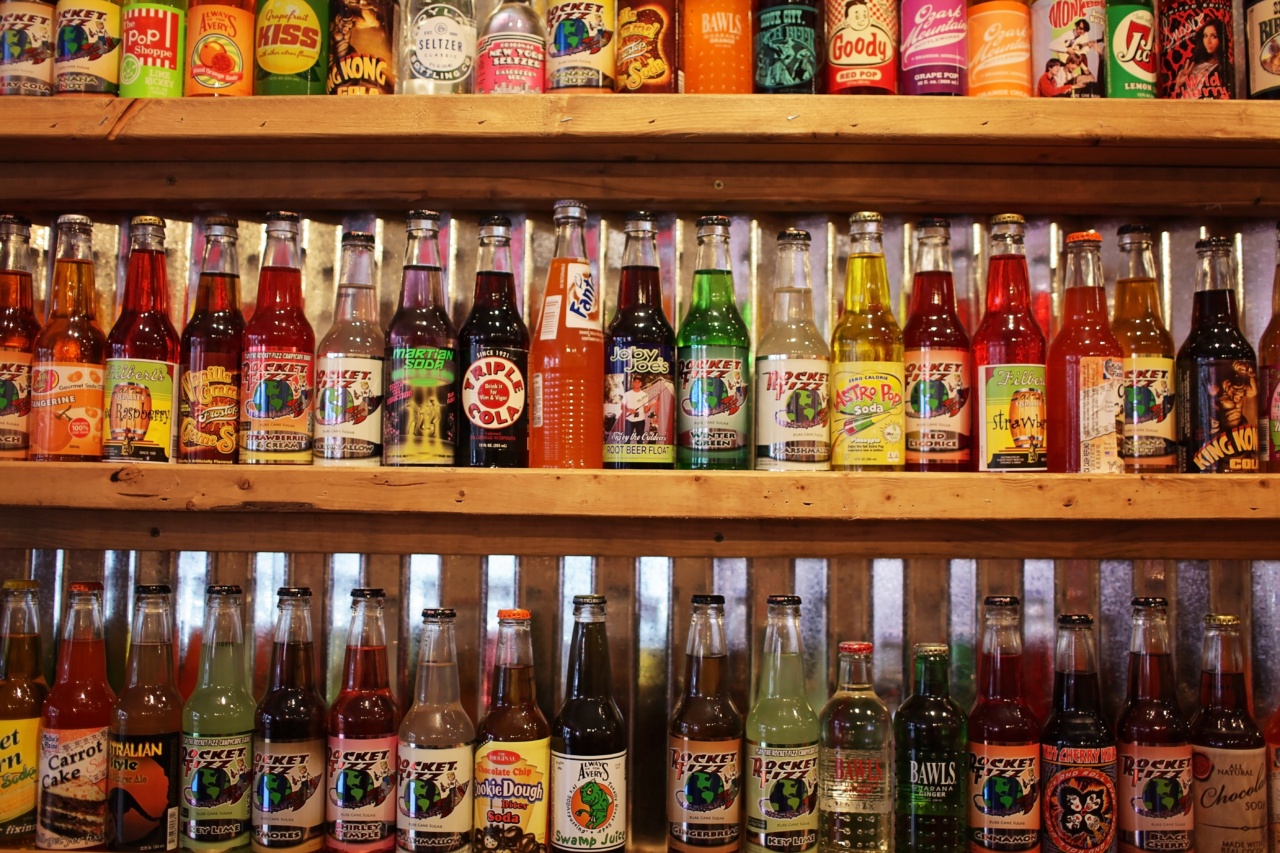Soft drinks have become a staple in the diets of many people around the world. With their appealing taste and refreshing nature, it’s no wonder that they are immensely popular.
However, research has shown that regular consumption of soft drinks can have a detrimental impact on our health, particularly increasing the risk of developing hypertension.
What is Hypertension?
Hypertension, also known as high blood pressure, is a common medical condition characterized by persistently elevated blood pressure levels.
It is often referred to as the “silent killer” as it typically has no noticeable symptoms, yet it can have serious consequences for our health if left uncontrolled.
The Connection between Soft Drinks and Hypertension
Several studies have demonstrated a strong link between regular consumption of soft drinks and an increased risk of developing hypertension.
Soft drinks are typically high in added sugars, such as high fructose corn syrup, which can contribute to weight gain and obesity. Obesity, in turn, is a well-established risk factor for hypertension.
Moreover, soft drinks contain excessive amounts of sodium, which is another factor that can contribute to high blood pressure. Higher sodium intake leads to fluid retention, subsequently increasing blood volume and putting strain on blood vessels.
This strain can lead to hypertension over time.
Additionally, soft drinks tend to contain caffeine, which can further elevate blood pressure levels. Caffeine acts as a stimulant that temporarily narrows blood vessels, causing an increase in blood pressure.
Regular consumption of caffeine-rich soft drinks can therefore have a cumulative effect on blood pressure levels.
The Impact of Added Sugars
The high sugar content in soft drinks is a significant concern when it comes to hypertension risk. Consuming excessive amounts of added sugars can lead to weight gain and obesity, both of which are major contributors to high blood pressure.
When we consume sugary drinks, such as soft drinks, our bodies quickly absorb the sugar content. This results in a rapid spike in blood sugar levels, which triggers the release of insulin.
Over time, repeated consumption of large amounts of added sugars can lead to insulin resistance, a condition in which our cells become less responsive to the effects of insulin.
Insulin resistance is strongly associated with hypertension. It impairs the ability of our blood vessels to relax and causes the production of substances that can lead to inflammation and constriction of blood vessels.
These effects can further contribute to high blood pressure and increase the risk of cardiovascular diseases.
The Role of Sodium in Soft Drinks
Sodium, often in the form of sodium chloride (table salt), is a common ingredient in soft drinks.
While sodium is an essential nutrient required for our bodies to function properly, consuming excessive amounts can have adverse effects on our health, especially concerning our blood pressure levels.
Soft drinks can be particularly problematic in terms of sodium intake because they often contain hidden salts. Even drinks that don’t taste salty can harbor surprisingly high amounts of sodium.
This excess sodium intake contributes to higher blood pressure levels by disrupting the delicate balance of fluids in our bodies.
When we consume excessive amounts of sodium, our kidneys cannot effectively remove the excess, leading to fluid retention.
As the volume of blood increases, it puts more pressure on our blood vessels, resulting in higher blood pressure levels over time.
The Influence of Caffeine
Many soft drinks, such as colas and energy drinks, contain caffeine. While caffeine can provide a temporary energy boost, it can also impact our blood pressure levels.
Caffeine is a stimulant that stimulates the release of adrenaline, a hormone that temporarily narrows our blood vessels. This narrowing, known as vasoconstriction, causes blood pressure to rise.
While the effect is usually temporary, frequent consumption of caffeine-rich beverages can have a cumulative effect on blood pressure levels.
Moreover, caffeine also has diuretic properties, which means it increases urine production. This diuretic effect can potentially lead to dehydration if large quantities of caffeinated soft drinks are consumed regularly.
Dehydration, in turn, can cause blood vessels to constrict, ultimately resulting in increased blood pressure levels.
Healthy Alternatives to Soft Drinks
Reducing or eliminating soft drink consumption can have significant health benefits, particularly when it comes to reducing hypertension risk. Fortunately, there are several healthier alternatives available:.
1. Water: Staying hydrated by drinking plain water is crucial for maintaining overall health. It helps regulate blood pressure, supports kidney function, and aids in weight management.
2. Herbal Teas: Various herbal teas, such as chamomile, peppermint, and green tea, can provide a refreshing and flavorful alternative to soft drinks. These teas have antioxidant properties and may have beneficial effects on blood pressure levels.
3. Fruit Infused Water: Add slices of your favorite fruits, such as strawberries or cucumbers, to water for a subtly flavored and refreshing drink. This option is low in sugar and provides extra vitamins and minerals.
4. Sparkling Water: For those who enjoy the fizzy sensation of soft drinks, sparkling water can be a suitable alternative. Opt for brands without added sugars or artificial sweeteners.
5. Homemade Smoothies: Blend fresh or frozen fruits with a base of water, yogurt, or milk to create a delicious and nutritious beverage that is high in vitamins and fiber.
Conclusion
Regular consumption of soft drinks poses a significant risk to our health, particularly when it comes to increasing the likelihood of developing hypertension.
The added sugars, sodium, and caffeine found in these beverages can have detrimental effects on blood pressure levels, leading to long-term health complications.
It is crucial to be mindful of our soft drink consumption and make healthier choices for our well-being.
By reducing or eliminating soft drinks from our diet and opting for healthier alternatives, we can significantly lower our hypertension risk and contribute to better overall health.





























